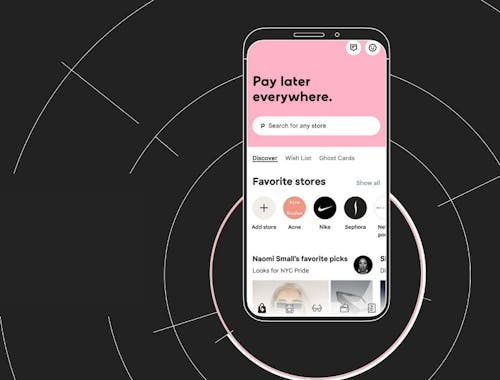Do you need a freelance or full-time marketer?

When the COVID pandemic-19 swept across the U.S. in 2020, work as we knew it disintegrated.
The atmosphere was too volatile for full-time hiring, and marketing leaders relied more and more on freelancers. In a 2021 survey, 63% of them said they had worked with a freelancer in the past six months.
Freelance hires worked out, too. Of the marketing leaders who were initially hesitant to hire freelancers but did it anyway, 97% said the risk paid off, according to the same survey.
And these days, freelancers are everywhere. During last year’s Great Resignation, during which up to 3% of the U.S. workforce quit each month, a host of workers left full-time employment for self-employment. In March 2022, the number of self-employed people was 618,000 above the average for 2019, economist Dean Baker noted.
That doesn’t mean full-time employment is dead. It’s just not the default anymore — hiring managers and workers are both increasingly freelance-curious.
MarketerHire advises hiring managers on freelance hiring all the time. Our team connects brands like Glossier and Allbirds with an on-demand network of experienced, vetted freelance marketers. To date, we’ve made over 20,000 freelancer-client matches.
Here’s how we know what type of talent is right for you.
If you want top-shelf talent, pick a freelancer.
“A much better marketer will freelance for you than will work for you at 99% of companies,” said MarketerHire CEO Chris Toy.
That means a marketer with…
- More recent experience
- More successful former clients
- More robust impact metrics
Marketing specialists often have more success focusing on one channel and becoming an industry expert than they do spanning multiple marketing channels in-house. They can apply their learnings from each client to the next and max out their channel expertise.
Just look at email marketer Chris Johnson: He 5Xed his previous salary within 10 months of going freelance.
So if you’re looking for the highest-quality talent — like the early Uber hires, former Facebook employees and Magic Spoon alums in MarketerHire’s network — don’t insist on a full-time commitment.
If you have months to invest in recruiting, hire a full-time employee.
It takes an average of 42 days to make a full-time hire, the Society of Human Resource Management reports.
For early-stage startups, making a first marketing hire can take even longer — roughly six months, according to Emergence Capital operating partner Viviana Faga.
“This will be the toughest role you hire for,” she writes.
If you have time to find the needle in the haystack, a full-time hire makes sense.
But keep in mind: Due to these lengthy recruiting timelines, companies often fill gaps in their org charts with experienced, fractional talent while they search for full-time headcount.
If you want someone to hit the ground running, go with a freelancer.
Ramping up fast is freelancers’ superpower.
They can start immediately. No need for them to give their notice at their current job — they’re already freelance!
Then, once signed, their deep experience across clients and industries means they only need basic onboarding. They already know their way around martech essentials like Hubspot, Klaviyo and Optimizely.
There’s a chance they know your tech stack better than you do!
If you’re excited about a fixed cost with no end date, hire a full-time employee.
Especially after you raise a round of venture funding, fixed costs feel inevitable, and a hiring spree just makes sense. Right?
Sometimes — but don’t rush in too fast. Revenue-per-employee is an increasingly popular proxy for company health, and it’s an easy metric to tank in an optimistic era, as Amazing.com CEO Matt Clark learned firsthand.
“[I]n the trenches of growth, I made the mistake of rushing hiring and forcing growth," Clark wrote. "It’s easy to hire people. It’s horrible to fire people."
We’ve seen once-buzzy startups fold with less than $2K in revenue per employee. Don’t let that be you!
If you’re ready for a fixed financial commitment, though, a full-time hire makes sense.
If you need to be able to pivot quickly, onboard a freelancer.
Freelance headcount makes it easy to try new channels and tactics, rapidly scale anything whatever performs, and drop anything that doesn’t pan out.
Just ask Taha Ahmed. As VP of corporate development at Forbes, he relies almost exclusively on freelancers.
“Freelancers have given me a tremendous amount of flexibility to move things quickly in the event something is not working,” Ahmed told MarketerHire. “The business is changing so fast and you need to be able to have the right person to do the right job at that particular time.”
Now — how do you hire?
Once you’re ready to hire, you need to thoroughly assess candidates’ hard skills, communication style and personality — especially if you’re hiring them full-time.
You’ll want to take it slow and…
- Ask them to quantify their impact in previous roles
- Ask “if not for” questions, to understand the resources and collaborators that made their past successes possible
- Ask about a past mistake, and make sure they’re humble enough to acknowledge missteps beyond “perfectionism”
If you’re hiring a freelancer, though, it’s a lower-commitment hire, and you can move more quickly.
“I would just test people out as contractors and see who works,” marketing thought leader Neil Patel advises. Start with a clearly-defined test project, and see how it goes.
Or make your life even easier, and start with MarketerHire. We vet freelance marketers so you don’t have to, and use proprietary MarketerMatch™ technology to find you a right-fit candidate in as little as 48 hours. Try MarketerHire today, and get a $500 credit towards your first hire with code CLEARCO500.







